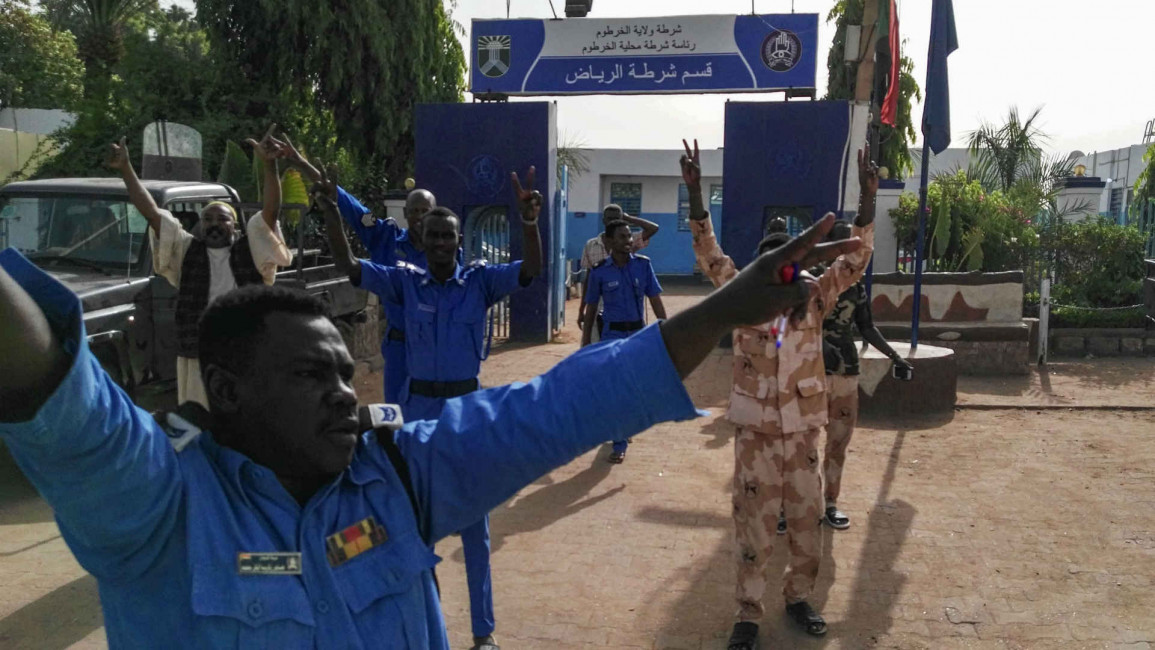Police hold 24-hour corruption strike in Sudan
A number of police officers in Sudan began a 24-hour comprehensive strike on Sunday to put more pressure on the military council to tackle corruption.
People across Sudan have criticised the police for their actions in recent demonstrations. The demonstrations, which began after the country fell into dire economic straits, ousted President Omar al-Bashir after 30 years.
Police compounds in the capital Khartoum were without activity on Sunday, according to sources who spoke to The New Arab .
The strike comes with a range of demands including an increase in pay and proper working conditions.
Popular protests led to the resignation of former police chief, Tayeb Babkir, and two of his colleagues from Sudan's governing transitional military council on Wednesday night.
Talks between the Alliance for Freedom and Change (AFC), an umbrella group which took on the negotiating role following the overthrow of former president Omar al-Bashir, and the transitional military council have been taking place for weeks.
|
Organisers from the AFC said talks Saturday on forming a transitional government were "transparent" and "fruitful."
Both sides announced they would set up a joint committee comprised of members of both the military council and the Forces for the Declaration of Freedom and Change, a coalition of opposition groups led by the Sudanese Professionals Association, to tackle political disputes.
The military council took control earlier this month, promising to oversee a two-year "transitional period" during which it pledged to hold presidential elections.
The opposition is critical of the police for their role in suppressing demonstrations. Approximately 90 people have died in protests since the revolution broke out on December 19.
The one day strike comes after the military council and the General of the Police Council ignored suggested reforms aimed at tackling corruption through "concrete steps".
Lieutenant-General Hadi Yahya, former Kassala police chief, described the strike as "unique". Yahya told The New Arab he was completely satisfied with efforts to reform the police force.
Agencies contributed to this report.
Follow us on Twitter: @The_NewArab



